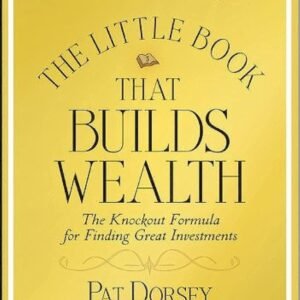When I was in my early 20s, the financial “advice” I constantly heard was “Just stop getting Starbucks in the morning!” or “Well, you didn’t need to get that avocado toast.” Rather than actually help me figure out how to spend and save according to my means, the older generations waved their fists at me from their figurative lawns and wouldn’t stop telling me how much my “little treats” were to blame for not being a homeowner yet. All this finger-wagging did was make me more obstinate. Actually, I’ll get Starbucks twice today, thank you.
What young millennials really needed at the time was someone to sit us down and tell us how exactly to use a credit card responsibly, the best way to start and stay on top of our savings goals, and how to budget our entry-level salaries. Instead, I, and so many others, had to learn these things the hard way. Now comfortably in my 30s, I own a home and have no debt besides my student loans. I’ve come a long way from my 20s when I operated on a “spend now, worry later” policy. And since millennials aren’t cringe anymore (thanks, Gen Z!), there’s no better time for me to impart what little wisdom I have on the next generation. Ahead, the financial advice I wish people had given me when I was in my early 20s, specifically tailored for you, Gen Z.
I’ve never been one to open a bunch of credit cards, but I did open a couple in my early 20s. Unfortunately, I swiped so much and so frequently that I quickly reached my limit for both of them. I viewed what should have been a safety net for emergencies or a tool to smartly earn rewards as free money with little regard to how I would pay the cards off or just how much interest would impact my monthly payments.
Despite how nice it feels to have an extra few thousand dollars burning a hole in your pocket, credit cards are tools, not free money for you to spend however and whenever you want. I think we all know this in theory, but in practice, managing your credit cards is easier said than done.
Before you even start applying for credit cards, research all of your options and choose one card that fits your needs and lifestyle the best. If you travel a lot, you’ll want a card that offers a kickass mileage program. If you foresee using your credit card in place of your debit card (and crucially paying off the balance every month), consider a card that gives cashback bonuses. Whatever you choose, you want your credit card working for you, not the other way around. When you get a credit card, you should still only spend the money you have and pay your balance off each month. This way, you’ll maximize benefits without saddling yourself with a ton of debt.
READ: The Credit Card You Should Get, Based on Your Goals
2. Investing isn’t just for rich people
The thought of investing never even occurred to me before I met my husband, who had several investment accounts of his own despite not being a member of society’s elite. The realization rocked my world. With my habit of overspending and a lot of credit card debt, investing was not something that ever crossed my mind. However, it can be an incredibly smart way to save money, and the younger you start, the more you can gain.
READ: I’ve Built Up a Six-Figure Investment Portfolio on an Average Salary—Here’s How
There are two crucial things you need to know about investing that might lower the barrier to entry for you. One, you don’t need to play the stock market game to see your money grow, and two, you don’t need a lot of money to start. You can choose a brokerage to manage your investments and start by making small contributions to index funds, which are sets of diverse stocks that mimic the overall stock market. (The Acorns app is a great investment tool for beginners and veterans alike!) The best part is, you don’t have to think too much about the money you put into these funds. Index funds are a long game, so they’ll dip when there are dips in the market, and they’ll gain as the market grows.
“The sneakers you bought last year are still fine this year… the phone you have works just as good as the new one that just came out… the product your favorite influencer is shilling on TikTok will not actually change your life.”
If you start investing with the mindset that you’re saving for your future self, these accounts are low risk as they’re designed to grow steadily over time. So, if you start by just putting $50 or $100 away each month (or whatever your budget allows) and steadily increase contributions as your salary hopefully increases throughout your life, you will see returns.
3. Don’t let FOMO cause lifestyle creep
This is a big one. I wasted so much money in my early 20s because I was unable to say no. “No” to that night out. “No” to that weekend trip. “No” to the new purse or shoes or whatever. I wanted to be at every single girls’ night out and wanted the latest and greatest of everything. For a string of several years, I bought every new iPhone that came out. I lived in a constant cycle of needing the latest and greatest to keep up with everyone around me, and it was a huge contributor (obviously) to my debt.
So, let me be the first to tell you that the sneakers you bought last year are still fine this year (even if they’re not “in” anymore). The phone you have works just as good as the new one that just came out. The product your favorite influencer is shilling on TikTok will not actually change your life. In short, don’t let FOMO and lifestyle creep put you into debt. Instead, focus on purchasing the items you definitely need first, and set a limited budget for wants. If you find yourself constantly hitting “add to cart” during your late-night scrolls, drop those links into your notes app and revisit them a week later to see if you still want to make the purchase or if you were fooled by clever marketing (guilty!).
4. Skill-building will take you further than side hustles
As much as side hustles can be helpful when you need a little extra cash, they’re not the way to actually develop professionally. Further, you shouldn’t turn every single hobby you have into a side hustle—it’s OK to enjoy things and not make money from them!
READ: Don’t Start a Side Hustle If…
If you really want to advance your career and increase your salary, you need to focus on making yourself stand out among everyone else in the job market. This means dedicating time you may otherwise spend on a side hustle toward skill-building instead. Think of it this way: You might have nearly the same career trajectory as someone else interviewing for a position you want, but if your resume is padded with additional proficiencies (real ones, not the “proficient in Excel” line we all lie about), you’ll rise above the competition.
Hayward | Dupe
Spend some time researching what skills are required for the positions you’re striving for, and see if there are courses or certifications you can get for those skills. This will make your application stand out to hiring managers and help you start that new role with some of the tools you need already under your belt.
5. Yes, you need a savings account—but not just any savings account
If you’re letting your savings (however much you have!) sit in the generic savings account attached to your checking account, you’re leaving money on the table. Instead, take that money and put it in a high-yield savings account. These types of accounts have higher interest rates, which means you get more money back simply by having your money there. At the time of writing, a typical Chase savings account has an APY (annual percentage yield, basically the returns on your money) of 0.01 percent. A Barclays savings account, on the other hand, offers a minimum of 4.10 percent APY. This can mean hundreds of extra dollars in your account at the end of the year versus the pennies you’d get from a standard savings account. Many high-yield savings accounts don’t require a minimum balance or have maintenance fees, which means there’s literally no downside to using them.
6. Job-hopping early in your career can put more money in your pocket
At the beginning of my career, I thought loyalty to a company was everything and that if I stayed with a company long enough, that loyalty would be rewarded with a salary to match. There’s definitely something to be said about being loyal to a company, but job-hopping (staying at a company for a year or two before searching for a new position) early in your career can help you make more money, faster. In fact, most workers report receiving a 10 percent increase in salary with each new position, compared to the 1 to 3 percent annual raises typical at most companies.
Job-hopping might become less lucrative and less of an option as you get older and progress in your career and your priorities change. Things like stability, benefits, and location might come to outweigh the hassle of job hunting and onboarding at new companies every couple of years. But for now, consider job hopping as a way to advance both your career and salary in tandem.
7. Your debt will not destroy you, but you do need to manage it
If this article didn’t reach you fast enough, and your credit cards, student loans, car payments, or what have you have already caught up with you, it’s not the end of the world. At 25, I sat down with my finances seriously for the first time and realized I’d racked up almost $20,000 of debt. Within just a couple of years, I had paid that off completely. It’s easy to wallow in shame and pity when it gets to this point, but I promise that debt is manageable, and the sooner you start chipping away at it, the sooner you’ll find relief. I detailed how I got a handle on my finances and paid off my debt here, but the best financial advice I can give you is to look into balance transfer credit cards.
“If you’re sticking to your budget, living within your means, and setting aside money for the future, you should have no qualms about getting yourself a little something.”
It sounds counterintuitive, but some credit cards offer a zero percent interest rate for balance transfers within an introductory period. For me, I transferred the bulk of my debt to a new credit card and paid it down aggressively with zero interest throughout that period. This saved me thousands of dollars in interest that I would have paid to my old bank.
Once you’ve settled on a debt payoff strategy, you’ll have to be diligent and stick with it. But as someone who went through this and is now on the other side, there’s no better feeling than watching that number reach zero and knowing you did it all on your own.
8. Talk to your friends about money, seriously
If you’ll allow me this millennial reference, there’s an episode of Friends where the gang gets together for dinner, and the question of how to split the bill comes up. This sparks the age-old debate of whether or not to split the bill evenly or have everyone pay only for what they ordered. Half of the group has vastly different financial situations from the other half, which makes things a bit uncomfortable. For so long, we’ve treated money as something you just don’t talk about, but it shouldn’t be taboo. If we were all honest about where we’re at, things would be a lot easier.
Adopt a no-shame mindset when it comes to talking about money. If things are tight and you want to cut back on happy hour, say so! If that girls’ trip isn’t in the cards this summer after all, tell your friends. On the flip side, be understanding if your friends come to you when they’re struggling, too. We all go through seasons in life, and financial ups and downs are part of that.
9. Don’t feel bad about getting yourself “little treats”
If you’re still hearing that your iced latte is keeping you from your financial goals, let me be the one to tell you they really are not. In fact, none of your “little treats” are. At the end of the day, if you’re sticking to your budget, living within your means, and setting aside money for the future, you should have no qualms about getting yourself a little something—whether it’s an iced latte, a new book from your TBR, or that pair of shoes you’ve been eyeing. Your money shouldn’t rule your life, and you should not be afraid of spending it.

ABOUT THE AUTHOR
Garri Chaverst, Senior Managing Editor
As Senior Managing Editor of The Everygirl, Garri oversees the pitching, planning, and creation of all content. You might also find her name pop up as a contributor throughout the site, though she mostly works behind the scenes, leading the team in their creative efforts and ensuring they have everything they need to create top-quality content for our audience.



















Leave a Reply